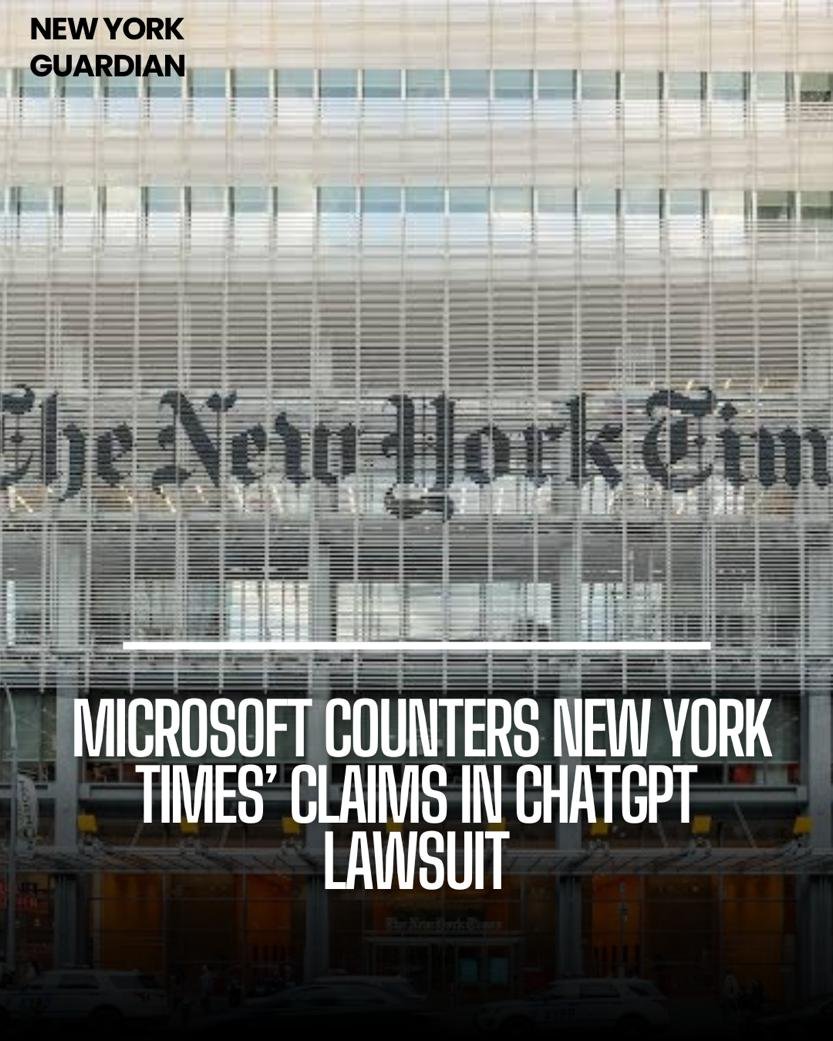A technology group that has invested in OpenAI has filed a legal motion to dismiss a case that accuses them of copyright infringement.
In response to The New York Times’ lawsuit alleging copyright infringement by OpenAI and Microsoft over their AI chatbots, Microsoft has filed a motion to dismiss the claims.
The tech giant accuses The New York Times of engaging in “doomsday futurology” by predicting that ChatGPT could negatively impact the news business.
Microsoft likens the lawsuit to past attempts by Hollywood studios to hinder new technologies, such as the VCR in the 1980s.
Microsoft’s Defense
Microsoft argues that copyright law should not hinder the development of AI technologies like ChatGPT, just as it did not impede innovations like the VCR, personal computers, or search engines.
The company asserts that the content used to train ChatGPT does not replace the market for the original works.
Additionally, Microsoft claims that The New York Times’ examples of copyright infringement are based on unrealistic scenarios and do not reflect real-world usage of AI-based tools.
OpenAI’s Response
OpenAI, in its response to The Times’ lawsuit, acknowledged using the newspaper’s articles to develop ChatGPT but denied that this significantly contributed to the training of its models.
OpenAI attributed any regurgitations of Times articles to ChatGPT’s inadvertent memorization rather than intentional copyright infringement.
The New York Times’ Perspective
Ian Crosby, a lawyer for The Times, criticized Microsoft’s comparison of large language models to the VCR, arguing that VCR makers did not engage in massive copyright infringement to build their products.
The Times maintains that it discovered its copyrighted works within ChatGPT and holds Microsoft and OpenAI accountable for their actions.
Legal Landscape
The lawsuit filed by The New York Times is just one of several legal challenges facing ChatGPT’s creators and investors.
Authors like John Grisham and Jodi Picoult have also filed lawsuits against OpenAI and Microsoft.
Despite the legal battles, Microsoft remains a significant supporter of OpenAI, investing billions of dollars to fuel the company’s growth and integrating GPT technology into its products like Bing Chat.
Conclusion
As the legal proceedings unfold, the dispute between The New York Times and Microsoft/OpenAI underscores the complex intersection of technology, copyright law, and AI development.
The outcome of these lawsuits could have far-reaching implications for the future of AI innovation and intellectual property rights in the digital age.





















